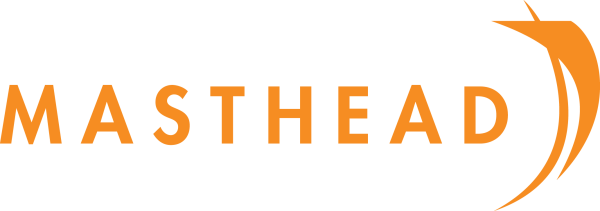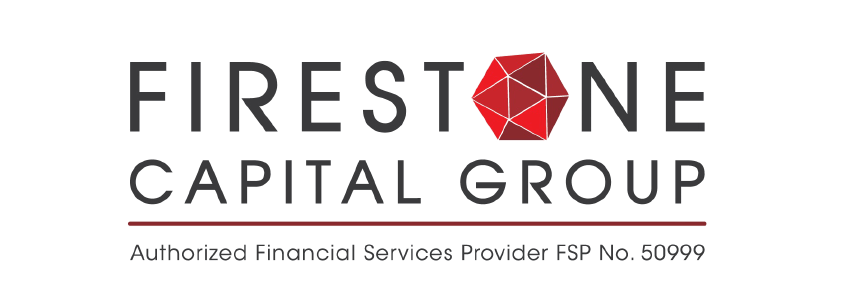CONTACT INFO
BUSINESS ADDRESS
1st Floor, 65 Michelle Avenue Randhart Alberton 1449
OFFICE HOURS
Monday to Friday: 08:00 – 17:00
Saturday & Sunday: Closed
Public Holidays: Closed
BLOG
Blog Categories
We are making it easy for you to find what you are looking for.
All

By Marcel Opperman
•
April 30, 2024
Tax season—it's that time of year again. The air is filled with the rustle of paperwork, the tapping of keyboards, and the collective sighs of taxpayers across the nation. But amidst the chaos and confusion, there's a glimmer of hope: the opportunity for strategic tax planning in 2024. Picture this: you're sitting at your desk, surrounded by a mountain of documents, trying to make sense of it all. The deadline looms ever closer, and you can feel the pressure mounting. But instead of succumbing to the stress, you take a deep breath and decide to approach tax season differently this year. You begin by familiarizing yourself with the latest changes to the tax landscape. From updates to tax brackets to new incentives for sustainable investments, you realize that staying informed is the first step toward effective tax planning. Armed with knowledge, you delve into the world of strategic tax planning. You explore the various tools and resources available, from tax-advantaged retirement investment vehicles to tax-efficient investment strategies. With each discovery, you feel a sense of empowerment knowing that you're taking control of your financial future. Technology becomes your ally in this endeavour. You embrace advanced tax software and consult with professionals, leveraging their capabilities to streamline the tax planning process. What was once a tedious chore now becomes a manageable task, thanks to the wonders of modern technology. But perhaps the most significant shift in your approach to tax season is the realization that tax planning isn't just a once-a-year affair—it's a year-round commitment. You adopt a proactive mindset, actively managing your income, expenses, and investments to optimize your tax strategies. As life's milestones come and go, you find yourself incorporating tax planning into each one. Whether it's getting married, buying a home, or starting a family, you seize every opportunity to maximize your financial resources and achieve long-term prosperity. And so, as Tax D-Day approaches, you find yourself in a different position than before. Instead of scrambling to meet the deadline, you're prepared and confident in your tax strategy. You submit your returns with ease, knowing that you've done everything in your power to minimize your tax liabilities and maximize your financial well-being. In the end, tax season in 2024 isn't just about filing returns—it's about taking control of your financial future. It's about embracing strategic tax planning as a means of achieving financial freedom and security. And as you reflect on your journey, you realize that with the right mindset and approach, tax season can be not just a source of dread, but a catalyst for financial empowerment.

By Marcel Opperman
•
February 27, 2024
In the dynamic landscape of healthcare in South Africa, the importance of medical malpractice insurance for doctors and specialists cannot be overstated. This form of insurance serves as a crucial safeguard, providing financial protection to healthcare professionals in the event of legal claims related to alleged medical negligence. Given the inherently complex and unpredictable nature of medical practice, even the most skilled and diligent professionals may find themselves facing accusations of malpractice. In a litigious society, where patients are increasingly aware of their rights, having robust malpractice insurance becomes a fundamental aspect of a doctor's risk management strategy. The financial implications of a malpractice lawsuit can be severe and potentially career-altering. Legal fees, court costs, and potential settlements can accumulate rapidly, placing a significant burden on a healthcare practitioner's personal and professional resources. Medical malpractice insurance acts as a crucial buffer, covering these financial obligations and allowing doctors and specialists to focus on their primary responsibility—patient care—without the constant fear of financial ruin. In a system where public trust in the medical profession is paramount, having insurance in place demonstrates a commitment to accountability and responsibility, reinforcing the overall credibility of the healthcare system. Moreover, the availability of medical malpractice insurance contributes to the overall stability of the healthcare industry in South Africa. In the absence of such insurance, the fear of legal repercussions may dissuade talented individuals from entering or continuing their careers in medicine. This potential reluctance could result in a shortage of skilled healthcare professionals, negatively impacting the quality and accessibility of medical care for the population. By making medical malpractice insurance a standard and recognized aspect of a doctor's professional toolkit, the healthcare system becomes better equipped to attract and retain top-tier talent, ultimately benefiting the well-being of the South African population. The significance of medical malpractice insurance extends beyond individual practitioners to the broader healthcare ecosystem. Hospitals, clinics, and other medical institutions are also exposed to legal risks, and having a comprehensive insurance policy helps mitigate these potential liabilities. This not only protects the financial stability of healthcare organizations but also contributes to maintaining a supportive and conducive environment for practitioners to deliver optimal patient care. Medical malpractice insurance is an indispensable component of the healthcare landscape in South Africa. It acts as a shield against the uncertainties and challenges inherent in the medical profession, offering financial protection to doctors and specialists while fostering a culture of accountability and responsibility. As the healthcare sector continues to evolve, the adoption and promotion of medical malpractice insurance contribute not only to the well-being of individual practitioners but also to the overall health and stability of the healthcare system in South Africa.

By Marcel Opperman
•
January 30, 2024
As we approach the end of the tax year in February 2024, it's the perfect time to take a closer look at your financial strategy. One crucial aspect to consider is maximizing your contributions to both your Retirement Annuity (RA) and Tax-Free Savings Account (TFSA). This strategic move not only secures your future but also offers significant tax benefits. Let's delve into the reasons why contributing before the tax year ends can be a game-changer for your financial well-being. 1.Tax Efficiency: One of the primary advantages of contributing to your RA and TFSA is the tax benefits they offer. Contributions made to your retirement are tax-deductible, reducing your taxable income for the tax year. You are also allowed to contribute up to R36 000,00 per annum into your Tax-Free Savings Account and all growth achieved in the investment are tax-free. By taking advantage of this, you not only invest in your future but also optimize your tax liability. 2. Retirement Annuity (RA) – A Secure Future: Your RA is a long-term investment designed to provide financial security during your retirement years. Contributing towards your RA before the tax year ends ensures that you're making the most of the tax advantages while building a substantial nest egg for your golden years. The sooner you start contributing, the more time your investments have to grow through the power of compounding. 3. Tax-Free Savings Account (TFSA) – Flexibility and Growth: Unlike the RA, the TFSA offers flexibility in terms of withdrawals. Contributions to your TFSA grow tax-free, and you can withdraw funds without incurring any tax consequences. This makes TFSA a versatile tool for both short-term and long-term financial goals. By contributing before the tax year concludes, you're capitalizing on the opportunity for tax-free growth and creating a valuable resource for future needs. You also will not have the option of contributing this amount again, once the tax year has passed. It is a use it or lose it benefit. 4. Deadline Reminder – Act Now: With the tax year ending in February 2024, time is of the essence. To make the most of the tax benefits and ensure your contributions count for the current year, it's crucial to act promptly. Waiting until the last minute may lead to missed opportunities and potential tax savings. 5. Financial Planning for a Secure Tomorrow: Contributing to your RA and TFSA is not just about saving on taxes; it's about building a secure financial future. Take the time to reassess your financial goals, review your investment strategy, and ensure that your contributions align with your long-term objectives. Seeking advice from a financial planner can provide personalized insights tailored to your unique situation. 6. Educate Yourself – Empower Your Financial Journey: Understanding the intricacies of retirement planning and tax-free savings is essential. Equip yourself with knowledge about the contribution limits, investment options, and the potential returns. The more informed you are, the better decisions you can make to safeguard your financial well-being. As the clock ticks down to the end of the tax year in February 2024, consider making a strategic move that can have a lasting impact on your financial future. By maximizing your contributions to your Retirement Annuity and Tax-Free Savings Account, you not only benefit from immediate tax advantages but also set the stage for a secure and prosperous tomorrow. Don't let this opportunity slip away – take charge of your financial destiny and make your contributions before the tax year comes to a close. Your future self will thank you.

By Marcel Opperman
•
November 28, 2023
Maximising Success: The Crucial Role of a Quality Accountant in Your Business In the dynamic and competitive landscape of business, entrepreneurs often find themselves juggling numerous responsibilities to ensure the success of their companies. While the focus is often on product development, marketing strategies, and customer satisfaction, one critical aspect that should not be overlooked is the expertise of a quality accountant. A skilled accountant can be a game-changer for your business, offering far more than just number crunching and tax filing services. In this blog post, we'll explore the importance of having a top-notch accountant to handle your company's accounting and tax needs and how their expertise can add significant value to your business. Financial Health and Decision-Making: One of the primary roles of an accountant is to provide a clear picture of your company's financial health. They analyze your financial statements, track cash flow, and provide insights into your business's overall financial performance. This information is invaluable for making informed decisions, whether it's about investments, expansion plans, or cost-cutting measures. A quality accountant acts as a financial advisor, guiding you through complex financial scenarios and helping you make strategic decisions that contribute to the long-term success of your business. Tax Compliance and Savings: Tax regulations can be complex and ever-changing, and navigating them without professional help can be a daunting task. A skilled accountant keeps abreast of the latest tax laws and ensures that your business remains compliant. Moreover, they can identify opportunities for tax savings, taking advantage of incentives, credits, and deductions that you might overlook. This not only helps in reducing your tax liability but also maximizes your financial resources, allowing you to reinvest in your business or allocate funds strategically. Risk Mitigation: Businesses face various financial risks, from economic downturns to unexpected expenses. A quality accountant plays a crucial role in identifying potential risks and developing strategies to mitigate them. Through thorough financial analysis, they can help you create contingency plans and establish financial reserves, providing a safety net for your business in challenging times. This proactive approach to risk management can be the key to surviving and thriving in a volatile business environment. Efficiency and Time Savings: Managing the financial aspects of a business requires time and expertise. By outsourcing these responsibilities to a qualified accountant, you free up valuable time that can be redirected towards core business activities. This not only increases efficiency but also allows you to focus on what you do best – growing your business. A quality accountant utilizes their expertise to streamline financial processes, implement efficient accounting systems, and ensure that your business operates smoothly from a financial standpoint. Strategic Planning for Growth: Beyond the day-to-day financial tasks, a skilled accountant is an invaluable partner in strategic planning for business growth. They can help you create realistic financial forecasts, identify key performance indicators, and develop financial strategies aligned with your business goals. Whether you're considering expansion, mergers, or acquisitions, an accountant's insights contribute to a well-informed and financially sound growth strategy. Conclusion: In conclusion, having a quality accountant is not just a matter of meeting regulatory requirements; it is an investment in the long-term success and sustainability of your business. From providing financial clarity and tax optimization to risk mitigation and strategic planning, the value that a skilled accountant brings to the table goes far beyond number crunching. As businesses navigate an increasingly complex financial landscape, the guidance of a qualified accountant becomes indispensable. So, when building the foundation for your business success, make sure to reach out to Firestone Capital Group to add a top-notch accountant and tax specialist in your team to ensure growth in your business.

By Marcel Opperman
•
May 15, 2023
In an unfortunate turn of events you are left reeling from the loss of a loved one. You are still in the process of grief when you notice the portrait depicting rolling hills with the sun setting over the horizon. It was their favourite piece of art which, together with the rest of their belongings, must be awarded to the heirs the estate.

By Marcel Opperman
•
April 28, 2023
It involves putting your money into assets with the expectation of generating a return or profit over time. However, investing can be daunting, especially for beginners. In this month’s blog, we will discuss the essential aspects of investing that you need to know to make informed investment decisions.
Investments

By Marcel Opperman
•
January 30, 2024
As we approach the end of the tax year in February 2024, it's the perfect time to take a closer look at your financial strategy. One crucial aspect to consider is maximizing your contributions to both your Retirement Annuity (RA) and Tax-Free Savings Account (TFSA). This strategic move not only secures your future but also offers significant tax benefits. Let's delve into the reasons why contributing before the tax year ends can be a game-changer for your financial well-being. 1.Tax Efficiency: One of the primary advantages of contributing to your RA and TFSA is the tax benefits they offer. Contributions made to your retirement are tax-deductible, reducing your taxable income for the tax year. You are also allowed to contribute up to R36 000,00 per annum into your Tax-Free Savings Account and all growth achieved in the investment are tax-free. By taking advantage of this, you not only invest in your future but also optimize your tax liability. 2. Retirement Annuity (RA) – A Secure Future: Your RA is a long-term investment designed to provide financial security during your retirement years. Contributing towards your RA before the tax year ends ensures that you're making the most of the tax advantages while building a substantial nest egg for your golden years. The sooner you start contributing, the more time your investments have to grow through the power of compounding. 3. Tax-Free Savings Account (TFSA) – Flexibility and Growth: Unlike the RA, the TFSA offers flexibility in terms of withdrawals. Contributions to your TFSA grow tax-free, and you can withdraw funds without incurring any tax consequences. This makes TFSA a versatile tool for both short-term and long-term financial goals. By contributing before the tax year concludes, you're capitalizing on the opportunity for tax-free growth and creating a valuable resource for future needs. You also will not have the option of contributing this amount again, once the tax year has passed. It is a use it or lose it benefit. 4. Deadline Reminder – Act Now: With the tax year ending in February 2024, time is of the essence. To make the most of the tax benefits and ensure your contributions count for the current year, it's crucial to act promptly. Waiting until the last minute may lead to missed opportunities and potential tax savings. 5. Financial Planning for a Secure Tomorrow: Contributing to your RA and TFSA is not just about saving on taxes; it's about building a secure financial future. Take the time to reassess your financial goals, review your investment strategy, and ensure that your contributions align with your long-term objectives. Seeking advice from a financial planner can provide personalized insights tailored to your unique situation. 6. Educate Yourself – Empower Your Financial Journey: Understanding the intricacies of retirement planning and tax-free savings is essential. Equip yourself with knowledge about the contribution limits, investment options, and the potential returns. The more informed you are, the better decisions you can make to safeguard your financial well-being. As the clock ticks down to the end of the tax year in February 2024, consider making a strategic move that can have a lasting impact on your financial future. By maximizing your contributions to your Retirement Annuity and Tax-Free Savings Account, you not only benefit from immediate tax advantages but also set the stage for a secure and prosperous tomorrow. Don't let this opportunity slip away – take charge of your financial destiny and make your contributions before the tax year comes to a close. Your future self will thank you.

By Marcel Opperman
•
April 28, 2023
It involves putting your money into assets with the expectation of generating a return or profit over time. However, investing can be daunting, especially for beginners. In this month’s blog, we will discuss the essential aspects of investing that you need to know to make informed investment decisions.
Insurance

By Marcel Opperman
•
February 27, 2024
In the dynamic landscape of healthcare in South Africa, the importance of medical malpractice insurance for doctors and specialists cannot be overstated. This form of insurance serves as a crucial safeguard, providing financial protection to healthcare professionals in the event of legal claims related to alleged medical negligence. Given the inherently complex and unpredictable nature of medical practice, even the most skilled and diligent professionals may find themselves facing accusations of malpractice. In a litigious society, where patients are increasingly aware of their rights, having robust malpractice insurance becomes a fundamental aspect of a doctor's risk management strategy. The financial implications of a malpractice lawsuit can be severe and potentially career-altering. Legal fees, court costs, and potential settlements can accumulate rapidly, placing a significant burden on a healthcare practitioner's personal and professional resources. Medical malpractice insurance acts as a crucial buffer, covering these financial obligations and allowing doctors and specialists to focus on their primary responsibility—patient care—without the constant fear of financial ruin. In a system where public trust in the medical profession is paramount, having insurance in place demonstrates a commitment to accountability and responsibility, reinforcing the overall credibility of the healthcare system. Moreover, the availability of medical malpractice insurance contributes to the overall stability of the healthcare industry in South Africa. In the absence of such insurance, the fear of legal repercussions may dissuade talented individuals from entering or continuing their careers in medicine. This potential reluctance could result in a shortage of skilled healthcare professionals, negatively impacting the quality and accessibility of medical care for the population. By making medical malpractice insurance a standard and recognized aspect of a doctor's professional toolkit, the healthcare system becomes better equipped to attract and retain top-tier talent, ultimately benefiting the well-being of the South African population. The significance of medical malpractice insurance extends beyond individual practitioners to the broader healthcare ecosystem. Hospitals, clinics, and other medical institutions are also exposed to legal risks, and having a comprehensive insurance policy helps mitigate these potential liabilities. This not only protects the financial stability of healthcare organizations but also contributes to maintaining a supportive and conducive environment for practitioners to deliver optimal patient care. Medical malpractice insurance is an indispensable component of the healthcare landscape in South Africa. It acts as a shield against the uncertainties and challenges inherent in the medical profession, offering financial protection to doctors and specialists while fostering a culture of accountability and responsibility. As the healthcare sector continues to evolve, the adoption and promotion of medical malpractice insurance contribute not only to the well-being of individual practitioners but also to the overall health and stability of the healthcare system in South Africa.
Legal

By Marcel Opperman
•
May 15, 2023
In an unfortunate turn of events you are left reeling from the loss of a loved one. You are still in the process of grief when you notice the portrait depicting rolling hills with the sun setting over the horizon. It was their favourite piece of art which, together with the rest of their belongings, must be awarded to the heirs the estate.
Accounting & Tax

By Marcel Opperman
•
April 30, 2024
Tax season—it's that time of year again. The air is filled with the rustle of paperwork, the tapping of keyboards, and the collective sighs of taxpayers across the nation. But amidst the chaos and confusion, there's a glimmer of hope: the opportunity for strategic tax planning in 2024. Picture this: you're sitting at your desk, surrounded by a mountain of documents, trying to make sense of it all. The deadline looms ever closer, and you can feel the pressure mounting. But instead of succumbing to the stress, you take a deep breath and decide to approach tax season differently this year. You begin by familiarizing yourself with the latest changes to the tax landscape. From updates to tax brackets to new incentives for sustainable investments, you realize that staying informed is the first step toward effective tax planning. Armed with knowledge, you delve into the world of strategic tax planning. You explore the various tools and resources available, from tax-advantaged retirement investment vehicles to tax-efficient investment strategies. With each discovery, you feel a sense of empowerment knowing that you're taking control of your financial future. Technology becomes your ally in this endeavour. You embrace advanced tax software and consult with professionals, leveraging their capabilities to streamline the tax planning process. What was once a tedious chore now becomes a manageable task, thanks to the wonders of modern technology. But perhaps the most significant shift in your approach to tax season is the realization that tax planning isn't just a once-a-year affair—it's a year-round commitment. You adopt a proactive mindset, actively managing your income, expenses, and investments to optimize your tax strategies. As life's milestones come and go, you find yourself incorporating tax planning into each one. Whether it's getting married, buying a home, or starting a family, you seize every opportunity to maximize your financial resources and achieve long-term prosperity. And so, as Tax D-Day approaches, you find yourself in a different position than before. Instead of scrambling to meet the deadline, you're prepared and confident in your tax strategy. You submit your returns with ease, knowing that you've done everything in your power to minimize your tax liabilities and maximize your financial well-being. In the end, tax season in 2024 isn't just about filing returns—it's about taking control of your financial future. It's about embracing strategic tax planning as a means of achieving financial freedom and security. And as you reflect on your journey, you realize that with the right mindset and approach, tax season can be not just a source of dread, but a catalyst for financial empowerment.

By Marcel Opperman
•
November 28, 2023
Maximising Success: The Crucial Role of a Quality Accountant in Your Business In the dynamic and competitive landscape of business, entrepreneurs often find themselves juggling numerous responsibilities to ensure the success of their companies. While the focus is often on product development, marketing strategies, and customer satisfaction, one critical aspect that should not be overlooked is the expertise of a quality accountant. A skilled accountant can be a game-changer for your business, offering far more than just number crunching and tax filing services. In this blog post, we'll explore the importance of having a top-notch accountant to handle your company's accounting and tax needs and how their expertise can add significant value to your business. Financial Health and Decision-Making: One of the primary roles of an accountant is to provide a clear picture of your company's financial health. They analyze your financial statements, track cash flow, and provide insights into your business's overall financial performance. This information is invaluable for making informed decisions, whether it's about investments, expansion plans, or cost-cutting measures. A quality accountant acts as a financial advisor, guiding you through complex financial scenarios and helping you make strategic decisions that contribute to the long-term success of your business. Tax Compliance and Savings: Tax regulations can be complex and ever-changing, and navigating them without professional help can be a daunting task. A skilled accountant keeps abreast of the latest tax laws and ensures that your business remains compliant. Moreover, they can identify opportunities for tax savings, taking advantage of incentives, credits, and deductions that you might overlook. This not only helps in reducing your tax liability but also maximizes your financial resources, allowing you to reinvest in your business or allocate funds strategically. Risk Mitigation: Businesses face various financial risks, from economic downturns to unexpected expenses. A quality accountant plays a crucial role in identifying potential risks and developing strategies to mitigate them. Through thorough financial analysis, they can help you create contingency plans and establish financial reserves, providing a safety net for your business in challenging times. This proactive approach to risk management can be the key to surviving and thriving in a volatile business environment. Efficiency and Time Savings: Managing the financial aspects of a business requires time and expertise. By outsourcing these responsibilities to a qualified accountant, you free up valuable time that can be redirected towards core business activities. This not only increases efficiency but also allows you to focus on what you do best – growing your business. A quality accountant utilizes their expertise to streamline financial processes, implement efficient accounting systems, and ensure that your business operates smoothly from a financial standpoint. Strategic Planning for Growth: Beyond the day-to-day financial tasks, a skilled accountant is an invaluable partner in strategic planning for business growth. They can help you create realistic financial forecasts, identify key performance indicators, and develop financial strategies aligned with your business goals. Whether you're considering expansion, mergers, or acquisitions, an accountant's insights contribute to a well-informed and financially sound growth strategy. Conclusion: In conclusion, having a quality accountant is not just a matter of meeting regulatory requirements; it is an investment in the long-term success and sustainability of your business. From providing financial clarity and tax optimization to risk mitigation and strategic planning, the value that a skilled accountant brings to the table goes far beyond number crunching. As businesses navigate an increasingly complex financial landscape, the guidance of a qualified accountant becomes indispensable. So, when building the foundation for your business success, make sure to reach out to Firestone Capital Group to add a top-notch accountant and tax specialist in your team to ensure growth in your business.
OFFICE HOURS
Monday to Friday: 08:00 – 17:00
Saturday & Sunday: Closed
Public Holidays: Closed
Website Developed by WEBSHURE
Affiliations



Website Disclaimer | Privacy Statement | Cookie Policy | Compliance | PAIA Manual | Accessibility
Firestone Capital Group is an Authorised Financial Services Provider (FSP 50999) in terms of Section 8 of the FAIS Act.
© 2025
All Rights Reserved






